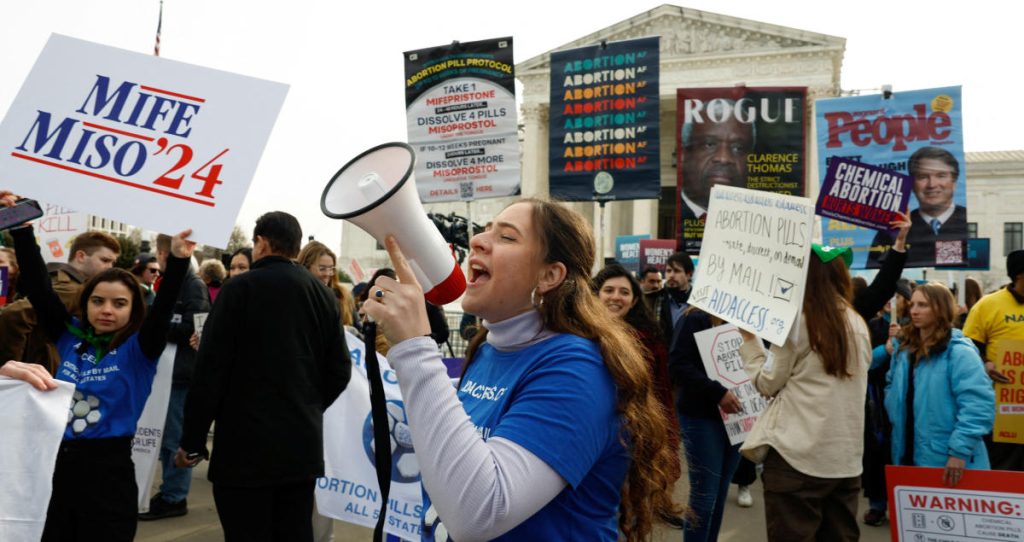Less than two years after the U.S. Supreme Court overturned the federal right to an abortion established by Roe v. Wade, the conservative-majority court is about to weigh in on the issue yet again. This time, the high court will consider a case that centers around the Food and Drug Administration’s decision to loosen restrictions on how mifepristone, a drug widely used to induce abortions, can be prescribed and dispensed. Nearly two-thirds of all abortions in the U.S. in 2023 were medication abortions, according to the Guttmacher Institute. If the Supreme Court rules against the FDA, restrictions on mifepristone would revert back to what they were when the drug was approved in 2000, potentially affecting access to the commonly used abortion medication across the country.
The two cases before the court, FDA v. Alliance for Hippocratic Medicine and Danco Laboratories v. Alliance for Hippocratic Medicine, revolve around the FDA’s approval of mifepristone in 2000 and subsequent actions taken in 2016 and 2021 to make the drug more accessible. One of the main points of contention during the hearing was whether the plaintiff, the Alliance for Hippocratic Medicine, had the legal standing to challenge the FDA’s approval of mifepristone. The plaintiff argues that doctors they represent are harmed by treating patients who have experienced complications from medication abortions, while the FDA and Danco Laboratories argue that there is no evidence of harm to doctors as a result of the drug.
The FDA’s 2021 decision to remove the requirement for an in-person visit to receive a prescription for mifepristone raised concerns about potential risks in determining the stage of pregnancy without an ultrasound. However, the FDA pointed out that ultrasounds were not required even with in-person visits in the past. Conservative justices Alito and Thomas raised questions about whether the Comstock Act, a 19th-century law prohibiting the mailing of “lewd” materials, prevented mifepristone from being dispensed through the mail, but the FDA argued that it was not their responsibility to enforce criminal law.
The outcome of the Supreme Court’s decision could have significant implications for the future of abortion access in the U.S. and could potentially impact access to mifepristone nationwide. Mifepristone access will remain unchanged until a decision is issued, which is expected by the end of June or early July. The case serves as a reminder that federal court decisions can override state laws and voter initiatives regarding abortion access, highlighting the ongoing battle over reproductive rights in the country. The justices’ questions during the hearing reflected concerns about restricting access to the abortion medication and the legal standing of the plaintiffs challenging the FDA’s decisions regarding mifepristone.


